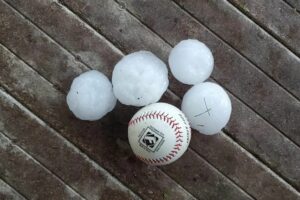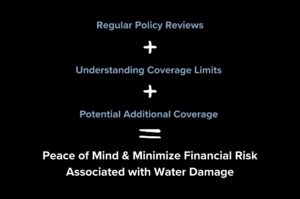Navigating insurance claims can feel like deciphering a cryptic puzzle. You file a claim expecting support, only to face the frustration of either a denied or underpaid insurance claim. Ever wondered what causes these outcomes? Join us as we unveil why insurance claims sometimes fall short and how you can proactively protect your rights.
Profit Pressures and Claim Outcomes
Insurance companies prioritize profit, which directly impacts their bottom line. This focus can lead to underpaid claims as they seek to maintain financial health. Your claim could be denied or underpaid for a multitude of reasons. Here are five of the most common:
Policy Exclusions
Policies often contain specific exclusions that limit coverage for certain events or circumstances. Your claim may be denied or only partially paid if it falls within one of these exclusions. If your current policy falls short, exploring alternative options is crucial to better prepare for the future. Our team is ready to assist you in finding the right coverage with the right carrier. To ensure that your property is adequately protected, submit your insurance policy for a complimentary review: https://premier-claims.com/policy-review/
Incomplete Documentation or Incorrect Information
Insufficient evidence or documentation to support your claim can result in underpayment or denial. Keep records, receipts, and photos to substantiate your claim. Incorrect or incomplete information provided when filing a claim can lead to delays or denials. Ensure all details are accurate and supported by documentation.
Misinterpretation of Policy Language
Insurance policies can be complex, and misinterpreting the language or terms can lead to misunderstandings about coverage entitlements. When was the last time you went through your insurance policy? One might think that insurance carriers purposely design policies with sneaky language and jargon that the average policyholder doesn’t understand.
Delay in Reporting
Failing to report a claim promptly after an incident can raise suspicions and lead to increased scrutiny or denial. Report claims as soon as possible to avoid complications! To learn more about when to file a claim, read our blog: When Is the Right Time to File a Property Insurance Claim?
Pre-existing Damage or Conditions
Claims for damage that existed before the policy period or was caused by pre-existing conditions may be denied as they do not meet the coverage criteria. Accurate documentation of the damage to your property and the date of loss is key! We recommend ensuring that your property is routinely inspected to help mitigate this type of denial. Updated documentation of your property’s condition can be a huge asset throughout any claims process.
Understanding Your Coverage Inside Out
Misunderstanding policy coverage often leads to claim denials. Policies are filled with industry jargon and fine print that can be challenging to decipher. Knowing your coverage thoroughly can prevent surprises and ensure you receive entitled benefits.
Leveraging Claims Expertise
Navigating claims processes alone is daunting. Our team of licensed professionals dedicates itself to maximizing your claim and advocating for your rights. Their extensive experience tends to ensure clarity and fairness throughout negotiations.
The Role of Public Adjusters
Similar to going to court without a lawyer, facing an insurance claim without a public adjuster may put you at a disadvantage. Public adjusters, like those at Premier Claims, specialize in claims management, offering critical support in understanding your rights as a policyholder. Premier Claims has a fully equipped team that tackles every aspect of the claims process for you.
Understanding why claims are underpaid or denied empowers you to secure fair treatment from your insurance company and prepare for future claims. Leveraging expertise, knowing your policy, and seeking professional support enable confident navigation of the claims process.
Take Charge of Your Claims Process Today.




